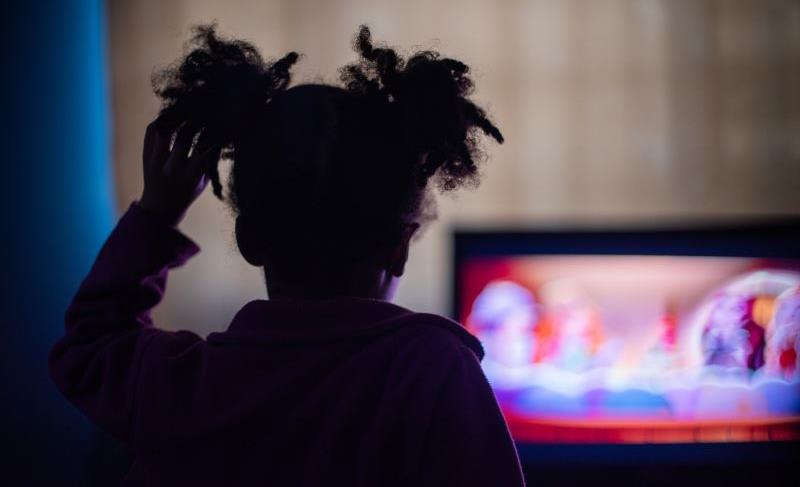It’s hard to know how to talk to kids about frightening or traumatic events in the news. Between the coverage of wars, pandemics, political uncertainty, neighborhood violence — where do we even start?
Thankfully, the National Center for Traumatic Stress Network (NCTSN) outlined some best practices for parents and caregivers on how to talk to their kids about traumatic events in the media and how to help them engage with their kids during the broadcasts. Hopefully, the following will help you develop a framework for guiding youth through the current media landscape.
Understanding Media Exposure
Media coverage surrounding a traumatic event such as 9/11 can produce increased fears and anxiety in children. On the anniversaries of these events, children may experience some of the same feelings and thoughts they had immediately after the event happened— trouble sleeping, concentrating at school or other changes in behaviors. The more time children spend watching coverage of a traumatic event, the more likely they are to have these negative reactions.
Graphic images and stories of loss may be particularly upsetting. Very young children may not understand that the coverage and repetition of images from a past event is just that — a replay. They may worry and fear that the event is happening again. Excessive exposure to the media coverage of a traumatic event can interfere with a child's recovery after the event. Children who were directly impacted by an event (e.g., lost someone in the event, were injured in the event, witnessed the event) are more vulnerable to negative effects from excessive media exposure.
What Parents Can Do to Help
- Make a Family Plan
Parents or caregivers should take the lead, with input from older children, in determining the extent your children will be exposed to the media, especially coverage of a traumatic event. The younger the child, the less exposure they should have. Consider if media exposure is necessary at all for a very young child and be ready to put your plan into action when necessary. - Watch and Discuss with Your Children
To gain a better understanding of how coverage may impact your children, watch what they watch and then discuss it with them. Ask about their thoughts and feelings on what they saw, read and heard. While it may not always be possible to watch the news together, particularly with older children and adolescents, you can take the time to discuss it with them to get a better sense of their fears and concerns. - Seize Opportunities for Communication
Sometimes you will be presented with unexpected opportunities to discuss a traumatic event. For example, a newsbreak with traumatic images may interrupt family programming. Use these opportunities to start conversations related to the event. Assure your children that you are available to talk about their feelings and thoughts. - Plan Time Away from the Coverage
Be sure your family has time away from the media coverage, especially if it is running constantly. Plan family activities away from the television, radio and internet so your children have enjoyable social activities to focus on in the time surrounding a traumatic event. Being with friends and family can have a very positive influence on their abilities to cope and bounce back after traumatic events. - Monitor Adult Conversations
Although you may monitor media coverage, it is also important to monitor your adult conversations related to the traumatic event. Even when adults are not aware, children are often listening and may not wholly understand what is being said. Overhearing adult conversations may increase worries and fears and lead to further confusion and distress. - Educate Yourself
Children may experience a variety of reactions in the face of traumatic events or reminders of such events. Many children are resilient and cope well, but some children may have enduring difficulties. These reactions may vary with age and exposure to the event. Learn about the possible reactions in children. This will allow you to be aware of problems your children may be experiencing and make good decisions about if or when any help is needed. More information can be found at nctsnet.org and apa.helping.org. - Plan Ahead
Think about what you will do if your child has a stress reaction following a traumatic event, or the coverage of its anniversary. Identify community resources you can contact to gain information and ask for help. Identify experts who work with children exposed to traumatic events. - Be Prepared
Know your community, school and family plans in the event of an emergency or crisis event. By being prepared, you maintain some control of very difficult situations and this increases your children’s sense of security and safety.



